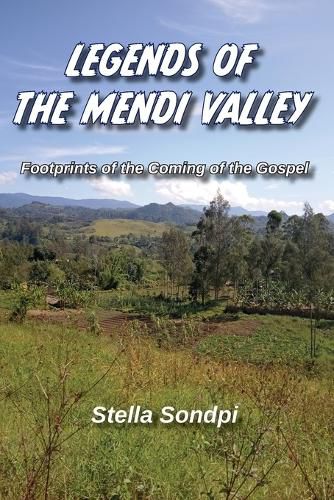Readings Newsletter
Become a Readings Member to make your shopping experience even easier.
Sign in or sign up for free!
You’re not far away from qualifying for FREE standard shipping within Australia
You’ve qualified for FREE standard shipping within Australia
The cart is loading…






This title is printed to order. This book may have been self-published. If so, we cannot guarantee the quality of the content. In the main most books will have gone through the editing process however some may not. We therefore suggest that you be aware of this before ordering this book. If in doubt check either the author or publisher’s details as we are unable to accept any returns unless they are faulty. Please contact us if you have any questions.
Culture within traditional societies has at times been portrayed as bad, even evil, something that people need to move on from to demonstrate a true faith in Christ. So it is against that negative paradigm that Stella Sondpi seeks to offer a contradictory view - that God has been present in tribal cultures well before their 'discovery' by missionaries and the rest of the world. These oral cultures have a rich heritage of stories and legends passed down faithfully through the generations. The key is in understanding the deeper meaning and significance of these narratives, like an overlay of meaning beyond the actual storyline.Building on her first book, POMBREOL, stories of pre-first contact life in the Mendi valley of Papua New Guinea told her by her grandfather, the author digs into ten legends in her tribe. The concept of Biblically-based spiritual truths embedded in culture was expounded by former missionary in Irian Jaya, Don Richardson, in his book, "Eternity in Their Hearts". He proposed that God has never left people groups devoid of witness and in fact, within various customs and tribal narratives are redemptive keys which are fulfilled when the full gospel message of redemption in Christ is received. Take, for example, the practice of blood sacrifice so common in Melanesia, or the acknowledgement of a Creator.Set in two parts, the author presents the ten tribal legends in Part One, then in Part Two explains their meaning within the culture and significance as prior 'footprints' of the gospel, embedding biblical truths within the culture in preparation for the coming of missionaries and the gospel message. Her claim is that her people were prepared to receive the Christian message as a result and accepted it.
$9.00 standard shipping within Australia
FREE standard shipping within Australia for orders over $100.00
Express & International shipping calculated at checkout
This title is printed to order. This book may have been self-published. If so, we cannot guarantee the quality of the content. In the main most books will have gone through the editing process however some may not. We therefore suggest that you be aware of this before ordering this book. If in doubt check either the author or publisher’s details as we are unable to accept any returns unless they are faulty. Please contact us if you have any questions.
Culture within traditional societies has at times been portrayed as bad, even evil, something that people need to move on from to demonstrate a true faith in Christ. So it is against that negative paradigm that Stella Sondpi seeks to offer a contradictory view - that God has been present in tribal cultures well before their 'discovery' by missionaries and the rest of the world. These oral cultures have a rich heritage of stories and legends passed down faithfully through the generations. The key is in understanding the deeper meaning and significance of these narratives, like an overlay of meaning beyond the actual storyline.Building on her first book, POMBREOL, stories of pre-first contact life in the Mendi valley of Papua New Guinea told her by her grandfather, the author digs into ten legends in her tribe. The concept of Biblically-based spiritual truths embedded in culture was expounded by former missionary in Irian Jaya, Don Richardson, in his book, "Eternity in Their Hearts". He proposed that God has never left people groups devoid of witness and in fact, within various customs and tribal narratives are redemptive keys which are fulfilled when the full gospel message of redemption in Christ is received. Take, for example, the practice of blood sacrifice so common in Melanesia, or the acknowledgement of a Creator.Set in two parts, the author presents the ten tribal legends in Part One, then in Part Two explains their meaning within the culture and significance as prior 'footprints' of the gospel, embedding biblical truths within the culture in preparation for the coming of missionaries and the gospel message. Her claim is that her people were prepared to receive the Christian message as a result and accepted it.